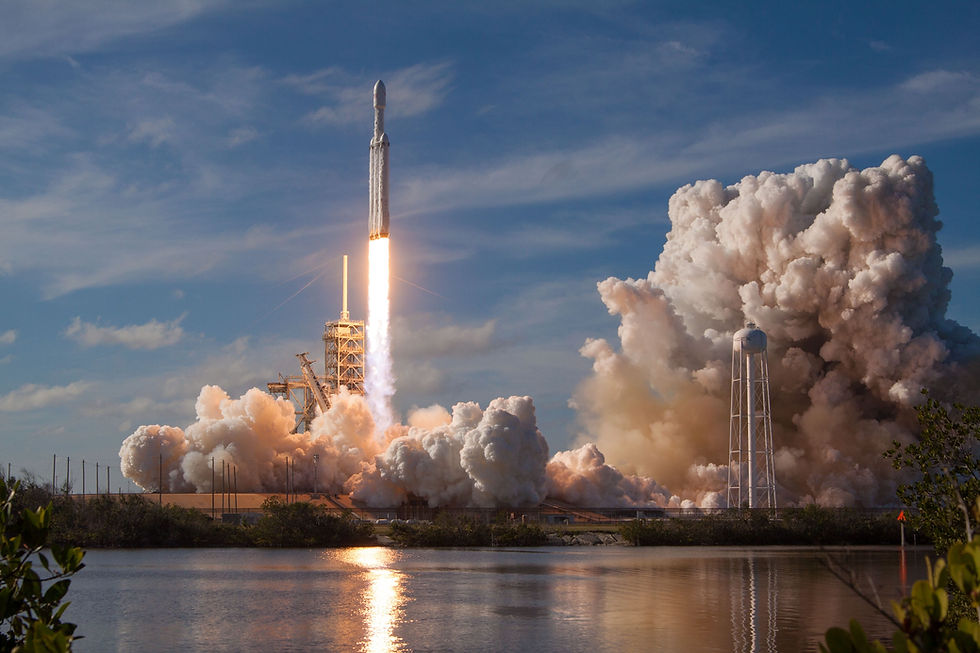Space Exploration: Humanity's Journey to the Stars
- Aditya Dubey
- Aug 17, 2024
- 3 min read

Space exploration has captivated the human imagination for centuries. From the early days of stargazing to the modern era of interplanetary travel, our quest to explore the cosmos has driven technological innovation and inspired generations. This blog will delve into the fascinating world of space exploration, highlighting key milestones, ongoing missions, and future aspirations.
Early Beginnings and the Space Race
The journey into space began with a competitive spirit during the mid-20th century. The launch of Sputnik 1 by the Soviet Union on October 4, 1957, marked humanity's first foray into space. This small satellite, orbiting the Earth, ignited the Space Race between the United States and the Soviet Union.
The competition led to rapid advancements in space technology. In 1961, Yuri Gagarin became the first human to orbit Earth, aboard the Vostok 1 spacecraft. The United States responded with the Apollo program, culminating in the historic Apollo 11 mission, where Neil Armstrong and Buzz Aldrin set foot on the Moon on July 20, 1969. This monumental achievement demonstrated human ingenuity and the potential for future space exploration.
Robotic Explorers: Unveiling the Mysteries of the Solar System
While human spaceflight captured public attention, robotic missions have been equally crucial in exploring the cosmos. The Voyager probes, launched in 1977, provided unprecedented insights into the outer planets of our solar system. Voyager 1 and Voyager 2 sent back detailed images and data from Jupiter, Saturn, Uranus, and Neptune, greatly expanding our understanding of these distant worlds.
Mars has been a focal point for robotic exploration. NASA's Mars rovers—Spirit, Opportunity, Curiosity, and Perseverance—have traversed the Martian surface, searching for signs of past life and studying the planet's geology and climate. These missions have paved the way for potential human exploration of Mars.
International Collaboration: The International Space Station
The International Space Station (ISS) stands as a testament to international cooperation in space exploration. Launched in 1998, the ISS serves as a laboratory for scientific research and a platform for international collaboration. Astronauts from various countries live and work together, conducting experiments that advance our knowledge in fields such as biology, physics, and astronomy.
The ISS also plays a crucial role in preparing for long-duration space missions. Research on the effects of microgravity on the human body informs future missions to the Moon, Mars, and beyond. The station's continued operation demonstrates the benefits of pooling resources and expertise from multiple nations.
Commercial Spaceflight: A New Era of Exploration
In recent years, commercial companies have emerged as significant players in space exploration. SpaceX, founded by Elon Musk, has revolutionized the industry with its reusable rocket technology. The Falcon 9 rocket and Dragon spacecraft have been instrumental in resupplying the ISS and launching satellites.
SpaceX's ambitious Starship program aims to make human space travel to Mars a reality. Blue Origin, founded by Jeff Bezos, is also developing reusable rockets with the goal of enabling access to space for more people. These commercial ventures are driving down the cost of space travel and opening new possibilities for exploration and tourism.
Future Missions: Returning to the Moon and Beyond
The future of space exploration is filled with exciting prospects. NASA's Artemis program aims to return humans to the Moon by 2024, establishing a sustainable presence and preparing for missions to Mars. The Lunar Gateway, a planned space station orbiting the Moon, will serve as a staging point for lunar and deep-space missions.
Mars remains the ultimate goal for human exploration. NASA, along with international partners and commercial companies, is developing the technology and infrastructure needed for a crewed mission to Mars in the 2030s. The challenges are immense, but the potential for scientific discovery and the expansion of human presence in the solar system is unparalleled.
Conclusion: Humanity's Endless Journey
Space exploration represents humanity's unending curiosity and desire to explore the unknown. From the early days of the Space Race to the collaborative efforts of the ISS and the innovative spirit of commercial spaceflight, our journey into the cosmos continues to evolve. The future holds the promise of new discoveries, technological advancements, and the potential to expand our presence beyond Earth. As we reach for the stars, we embody the very essence of exploration and the enduring quest for knowledge.




Comments